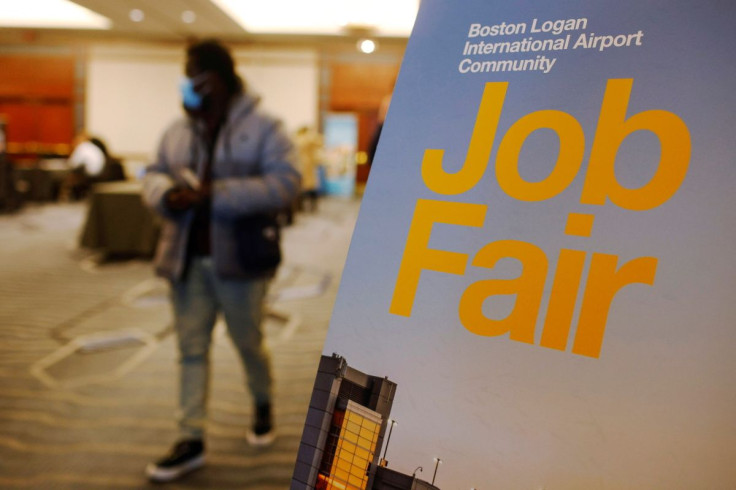U.S. Employers See Signs Of Cooling Job Market

People have been walking into Paul Centenari's cardboard box factory outside Baltimore asking for jobs, something he has not seen in over a year.
"We didn't see that a month ago," said Centenari, the chief executive of Atlas Container Corp. He said that just six months ago Atlas turned to a social service group that places ex-convicts into jobs to help fill positions.
"Labor is still tight, but it's loosening up a little bit." he said.
Just how much it may be loosening remains unclear. U.S. Labor Department data on Thursday showed unemployment benefits rolls remained near their lowest in decades.
And a report from payroll provider UKG suggested the U.S. job market strengthened in the first half of this month - even as the Federal Reserve lifted interest rates and some economists began warning of a potential recession.
But other signs point toward softening, including high-profile layoff announcements in sectors like technology and housing.
This week, Tesla shed 200 employees working on its Autopilot driver-assistant system. Earlier, CEO Elon Musk told managers the electric vehicle maker needed to cut staff by about 10%. JPMorgan Chase & Co started layoffs in its mortgage business.
Unsolicited job applicants are a glimmer of hope for Atlas Container and other U.S. employers who have struggled over the past two years to fill jobs and retain staff.
"We're always hiring because we're always losing people," Centenari said, noting that a lack of air conditioning at the factory makes it especially difficult to fill jobs during the summer.
"Our place gets hot in the summer," he said, which is why he was surprised when his hiring manager told him about the recent walk-ins.
FedEx Corp CEO Raj Subramaniam last week said he believes the worst of the company's labor problems are in its rear-view mirror. Wage inflation, employee turnover and costs tied to rerouting packages around understaffed facilities cost the global delivery firm $1.4 billion during its fiscal year ended May 31.
"Although wages remain higher than this time last year, they are stabilizing," Subramaniam said on an earnings conference call with analysts.
Subramaniam said the company is now focused on retaining staff and using technology to manage labor more effectively.
Staff shortages became a hallmark of the U.S. employment market during the COVID-19 pandemic, with so many workers quitting or changing jobs it was dubbed the "Great Resignation." Fed Chair Jerome Powell recently told lawmakers the current U.S. job market, with nearly two open jobs for every unemployed individual, was "sort of unsustainably hot."
Jason Andringa, chief executive of Vermeer Corp., a machinery manufacturer in Pella, Iowa, said he expects the job market to loosen up in coming months. He said the Fed's aggressive interest rate hikes have already cooled demand in a part of his business tied to the housing and consumer market: brush cutters sold to homeowners and their landscape servicers. Vermeer's other sectors remain strong.
"It definitely feels as though the labor market will not be as frothy as it was just a few weeks ago," he said.
© Copyright Thomson Reuters 2024. All rights reserved.




















